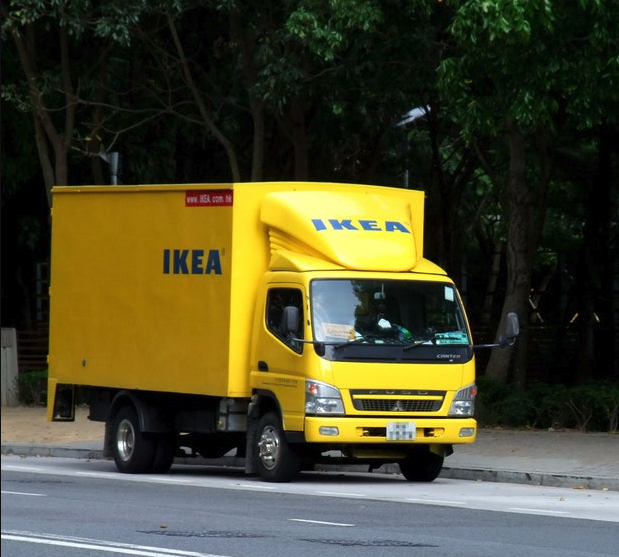
In September last year, IKEA announced its plans to transition to an electric delivery fleet, where all in-store and online purchases will be delivered via emission-free vehicles. At the time, the multichannel retailer said it would trial the new delivery method in New York, Los Angeles, Amsterdam and Paris, as well as Shanghai. The ultimate goal was to equip these regions with electric vehicles by 2020 and its entire global fleet by 2025.
In a statement, IKEA has revealed that its Shanghai delivery fleet has reached its emission-free target early, with all home deliveries now carried out by an electric vehicle.
Announcing the successful transition, Angela Hultberg, the head of sustainable mobility at IKEA’s parent company, Ingka Group said the business is pleased with its efforts so far.
“We wanted to challenge both ourselves and others, and Shanghai is one of the biggest cities in the world… A city that struggles with air pollution, the very problem we’re trying to address,” she said.
To achieve its emission-free delivery target in the region, the company reportedly sourced vehicles through local suppliers and invested in the infrastructure required to ensure there would be enough charging stations to cater for the fleet. According to Hultberg, the transition was made easier thanks to its locally-based warehousing distribution company, Beiye New Brother Logistics Co, supporting IKEA’s sustainability targets.
However, the most notable partnership that helped IKEA achieve its emission-free goal was DST, a Shenzen-based company that specialises in the lease of electric trucks and vans. Using these, as well as a handful of IKEA branded trucks that were purchased by Beiye New Brother Logistics Co, the Swedish retailer was able to successfully roll out its new fleet.
IKEA’s plans to make its order fulfilment process more sustainable aligns with its broader sustainability goals, which will see the business reduce the overall carbon footprint of each of its products by 70 percent by 2030. This includes the removal of single-use plastics from its products and stores across the globe by 2020. By next year, the company also plans to use 100 percent renewable energy across all of its operations.
This comes as the global business expands its e-commerce operations and invests in smaller, more central bricks-and-mortar stores.
According to the CEO of Ingka Group, Jesper Brodin, IKEA is seeing a shift in the way customers shop and that it needs to make significant investments if it wants to evolve along with the industry.
“We recognise that the retail landscape is transforming at a scale and pace we’ve never seen before,” he said. “[IKEA needs] to be investing and developing our business to meet their needs in better and new ways.”
Never miss our best stories. Sign up for Power Retail’s free weekly newsletter and find our daily stories on Facebook, Twitter, LinkedIn, and Instagram.

